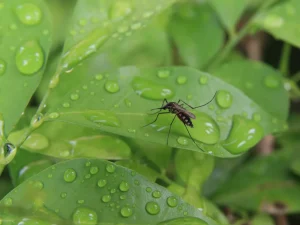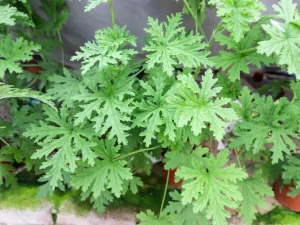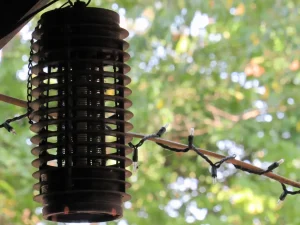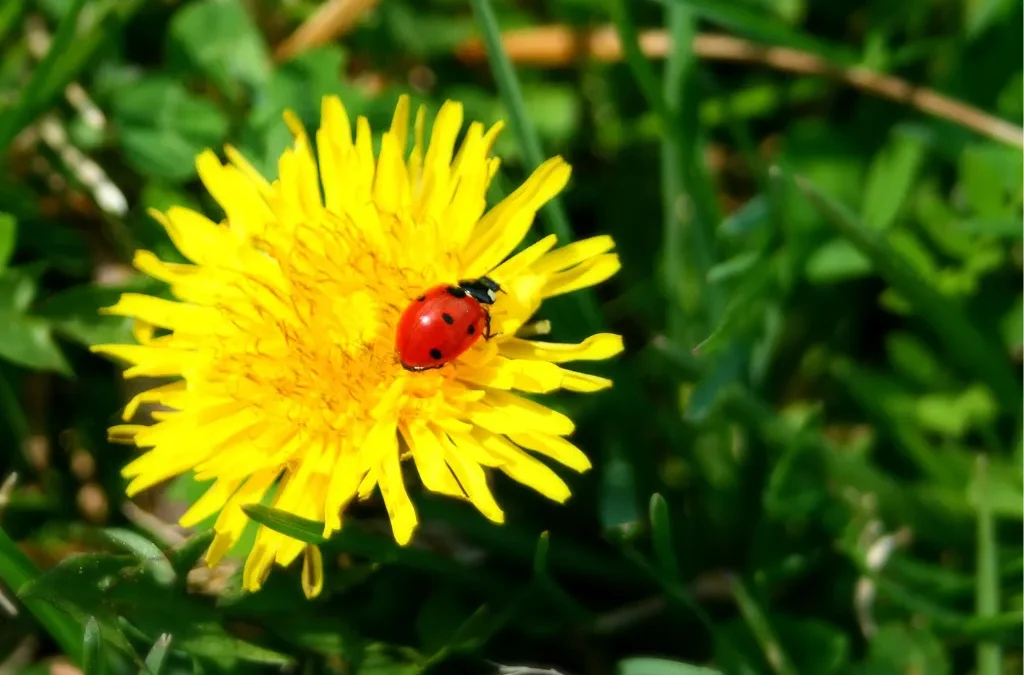Imagine enjoying a backyard barbecue with loved ones or sipping coffee and reading a book on the porch, only to have a swarm of bugs suddenly invade your space. In seconds, that serene, chill vibe is gone. Unfortunately, however, this scenario is all too common in Pittsburgh’s warm and humid months. That’s why knowing how to keep bugs away is more than a nice-to-have—it’s essential.
Here, we’ll share our bug survival tips–from natural solutions like the citronella plant to more practical tricks on how to repel insects– so you fully enjoy your summer, bug-free.
Why Pittsburgh Summers Bring The Bugs
Humidity And Greenery Create A Prime Bug Habitat
If you, like most people, wonder, out of all places, why us? Our city may be known for its lush parks, tree-lined neighborhoods, and riverside trails that may look idyllic, yet act as an insect breeding ground in the summer. The warm temperature and high humidity, mixed with shaded gardens and standing water from summer rains, create the hot spots for bugs to hang out and thrive.
Common Bugs To Watch Out For
Before learning how to repel insects, it helps to know which ones you’re up against—because different bugs may respond better to different repellents. In Pittsburgh’s summer, the regular suspects usually include:
- Flies: Attracted to food, garbage, and anything with a strong scent, especially during outdoor gatherings.
- Mosquitoes: Drawn to standing water, sweat, and even the carbon dioxide you exhale. They’re most active at dawn and dusk.
- Bees and Wasps: On the lookout for sweet drinks, ripe fruit, and flowering plants.
- Gnats and Midges: Thrive in humid areas with damp soil or decaying plant matter.
- Ants: Going for crumbs, sugar, and food sources spilled inside or outside the home.

Natural Plant-Based Repellents
Citronella Plant
For centuries, people around the world have used citronella plants to protect themselves from mosquitoes—and obviously for a good reason. Though it doesn’t kill mosquitoes or other bugs directly, the fresh, lemony scent of citronella contains natural oils that mask the smells insects use to find you. The scent’s invisible barrier makes it harder for bugs to lock onto the next target.
For best results, place potted citronella plants near seating areas, doorways, or windows where bugs are likely to sneak in. Combined with other strategies in this guide on how to keep bugs away, this plant can be both a functional and beautiful addition to your outdoor space.
Other Repellent Plants to Consider
While the citronella plant is a classic choice, it’s not the only greenery that can help in your insect-repelling plan. While serving as a nice touch that makes your outdoor or even indoor space lively, many flowers and herbs release scents that certain insects find unappealing. Here are some plants you can consider:
- Lavender: Known for its calming smell to humans, but a deterrent to mosquitoes, flies, and moths.
- Marigolds: Their bright blooms contain pyrethrum, a compound used in many insect repellents.
- Mint: A refreshing aroma for you, but an unwelcome scent for ants, spiders, and mosquitoes.
- Rosemary: Not only is it a must-have during an outdoor barbecue session or steak cookout, but the smell of rosemary is also a must for repelling insects in general.
- Basil: Repels flies and mosquitoes while serving as a fresh, flavorful kitchen herb—a true win-win solution for everybody.

Strategic Use of Outdoor Insect Control Products
Citronella Candles and Torches
If waiting for citronella to bloom in your garden takes too long or you simply don’t have the time to plant it yourself, your go-to solution can be citronella candles and torches. These two products work just like the plant itself, by releasing citronella oil into the air as they burn and ultimately repel the insects.
Where to Use: Think of it as a scented “shield” between you and the bugs, so place them around the perimeter of the area you want to protect. To maximize their coverage, put them at ground level or on the table.
How to Use: Before you’re about to do activities in the designated area, light those candles or torches about 15-20 minutes earlier. Our tip, though, is to use multiple candles spaced apart instead of relying on one big one, and consider the presence of strong winds, as it will blow the scent away somewhere else.
Bug Zappers and Repellent Devices
While plants and candles are great for decor, they may not work as well as bug zappers and repellent devices. These two provide a more proactive approach by attracting and eliminating insects or creating zones they won’t dare to cross.
Where to use: Bug zapper should be placed 10–20 feet away from where people gather, such as the far corner of a patio, garden edge, or near a tree line.
How to use: Repelling bugs with this thing is pretty straightforward. Just switch them on at least 30 minutes before outdoor activity so they can attract insects. Our tip is to keep it away from competing light sources for optimum use.

Sprays And Foggers
At the end of the day, if bugs keep bugging you despite previous efforts, you need a more powerful approach by bringing in sprays and foggers. However, to make sure those insects are gone for good, sprays rely on chemicals or natural oils formulated with chemicals. While spray can only be applied to restricted surfaces, foggers can be spread over a large area, like a patio.
Where to Use: Use sprays on exposed skin and clothing, or spray around seating areas and entry points. Use foggers in open outdoor spaces or enclosed areas that can be vacated during treatment.
How to Use: The general rule is to apply sprays evenly and reapply as recommended. As for foggers, make sure you follow all the safety guidelines, and no one is around when the insecticide is applied.
Create a Bug-Resistant Outdoor Living Space
Screened-In Options
Soaking in the sunlight and summer breeze unbothered by those bugs is made possible, thanks to insect screens. With these screens, you can create a so-called screened-in living space. Whether it’s a porch, patio, or even a gazebo, adding screens will allow your living space to remain open, yet protected from the outdoor world.
Fans And Circulations
Luckily, mosquitoes and many flying insects are weak fliers. Even a gentle breeze can make it difficult for them to land on you. Hence, our tip on how to keep bugs away while staying comfortable all summer long: use fans to create constant airflow in your outdoor spaces. Whether it’s a ceiling fan in a screened porch or a portable fan near your patio seating, good air circulation is a simple, chemical-free way to enjoy a bug-free zone in Pittsburgh’s humid summer months.
Patio Lighting Choices
What you might not expect in this guide on how to keep bugs away is lighting choices. The one that looks pleasing to our eyes, but not so much for insects, is the warm-toned or yellow “bug” LED lights. Additionally, you can shield the lights to make them less appealing to the insects. And if you’re worried about energy costs, don’t be—these days, many highly efficient solar-powered LED options that combine bug resistance with eco-friendly savings are available.
Eliminate Standing Water And Clean Up The Yard
Where Bugs Breed
To get rid of bugs once and for all, the key is targeting their breeding grounds. As mentioned earlier, mosquitoes, gnats, and other pests thrive in standing water, even in small amounts like puddles after rain, birdbaths, or clogged gutters. Some also find shelter in overgrown vegetation, leaf litter, garden debris, tree holes, hollow logs, and cluttered outdoor spaces, making yard cleanup a must on your to-do list this summer.
Tips For A Bug-Free Yard
To get yourself a bug-free yard, the first on your list should be regularly changing or emptying standing water in birdbaths, plant saucers, and pet bowls. Next, eliminate those shady, damp areas where insects can hide by trimming the grass, tidying the flower beds, and removing all that leaf litter, garden debris, and overgrown vegetation. Any unused storage should also be kept covered to prevent being targeted by those unwanted bugs.

Personal Protection For You And Your Family
Bug Sprays And Lotions
Even though you have followed our guide on how to repel insects, make sure you add extra protection for your loved ones using insect repellent sprays and lotions when hosting a bonfire bash in your yard. These products work by masking the scents that attract biting insects, giving you peace of mind while you relax outside. For children or those with sensitive skin, consider repellents with gentler, natural ingredients like lemon eucalyptus oil, citronella, or lavender.
Clothing Options
Summer calls for light-colored clothing—not just because it keeps you cooler, but because it’s less attractive to mosquitoes than darker shades. Opt for loose-fitting, long-sleeved shirts and long pants made from breathable fabrics like cotton or linen so you can stay comfortable while covering more skin. Pair them with wide-brimmed hats or lightweight scarves to keep the bugs at bay while enjoying the season in style.
End Note
By following our step-by-step tips on how to repel insects, you’ll be ready to enjoy summer evenings without the constant swatting. From yard maintenance, smart personal protection, and nature-friendly solutions, you’re not just keeping pests at bay—you’re creating a comfortable, inviting space for family and friends to gather. After all, outdoor time should be about laughter, good food, and fresh air, not sharing your plate with mosquitoes.
Stop by Johnson’s Ace to stock up on everything you need to keep your yard bug-free all season long and make the most of every sunny moment, here in Pittsburgh.


Recent Comments